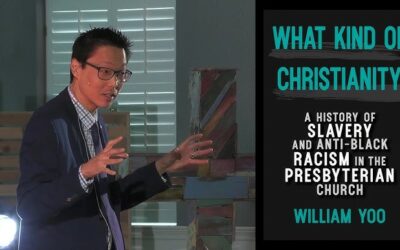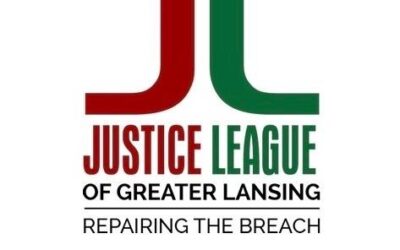Matthew 25 Initiative
Matthew 25 Resources
Matthew 25: A Bold Vision and Invitation
The Matthew 25 movement within the Presbyterian Church (USA) is a call to action, inspired by the words of Jesus in Matthew 25:31-46, to actively engage in ministries that address three critical areas of need: eradicating systemic poverty, dismantling structural racism, and fostering congregational vitality. The movement seeks to encourage and equip PC(USA) congregations, individuals, and mid councils to work together in transformative ways to bring about positive change in these areas.
The PC(USA) Matthew 25 movement focuses on the belief that being a faithful follower of Jesus Christ requires more than just worship and prayer, but also active involvement in addressing the pressing issues of our time. It calls upon the church to put faith into action by promoting justice, compassion, and mercy in the world.
The Matthew 25 movement provides a framework for PC(USA) congregations to assess their current ministries and identify ways in which they can become more engaged in these areas of need. It offers resources, tools, and support to help congregations develop and implement action plans tailored to their specific contexts and communities.
The movement’s three focus areas are interconnected and reflect the PC(USA)’s commitment to social justice and inclusivity. Click below to learn more about each focus areas.
Building Congregational Vitality
A vibrant community thrives through its spiritual strength and its dedication to a purposeful mission. Congregational vitality is reflected in a worshiping community where its structure, finances, and discipleship practices are effectively aligned. This alignment enables the community to actively engage in God’s mission both locally and globally while fostering growth as disciples of Jesus Christ.
Seven Marks of Congregational Vitality
- Lifelong Discipleship: Commitment to nurturing disciples throughout their lives, fostering both personal and social transformation as members embrace Christ’s heart and tackle societal issues.
- Evangelism: Demonstrating Christ’s love through actions and relationships, not just words. Genuine, caring relationships highlight our Christian identity.
- Outward Focus: Viewing the church as a gateway to the community, where members serve as the hands, feet, heart, and voice of Jesus Christ, especially for those who are suffering or marginalized.
- Empowering Members: Encouraging every member to discover their calling and gifts from God, enabling them to serve effectively.
- Spirit-Inspired Worship: Worship that challenges, teaches, and transforms us, leaving us renewed and energized to carry out our mission.
- Caring Relationships: Building relationships based on God’s love, leading to reconciliation, peace, and open-hearted hospitality.
- Healthy Systems: Clear mission focus, fiscal responsibility, effective decision-making, and a balanced work/rest environment for leaders and staff.
What Does Our Faith Demand?
Our faith calls us to embody the gifts of Word and Sacrament, equipping us as the body of Christ in the world. Vital communities follow Jesus into areas of injustice and struggle, spreading hope, love, and mercy. They work towards justice and peace, supported by prayer, worship, learning, and reflection. By stewarding God’s gifts, they reflect God’s promises and life-giving power in all they do.
VIEW RESOURCES
Dismantling Structural Racism
The focus area of dismantling structural racism within the PC(USA) Matthew 25 movement is a call to address the deep-seated systems, structures, and practices that perpetuate racism and inequality within the church and society. This focus acknowledges the ongoing struggle for racial justice and seeks to equip congregations and individuals to actively work towards dismantling racism in all its forms.
What Is Structural Racism?
Race is a concept created to classify people based on physical traits like skin color, but it has no scientific foundation and emerged during European colonialism. Prejudice is making judgments without evidence, even when proven wrong. Social power is the ability to influence society’s values, beliefs, and systems.
Racism is the combination of racial hierarchy, prejudice, and social power to create systems that treat people differently based on race, privileging some while oppressing others.
Structural racism is the normalization of racism within institutions, leading to persistent inequalities in areas like wealth, education, and health. In the U.S., structural racism benefits white people while disadvantaging people of color. Racism is pervasive, affecting all institutions, including the church, and should be measured by its impact, not intent. It can be overt or covert, individual or systemic, intentional or unintentional, and it sustains the dominance of privileged groups.
(notes adapted from https://united-church.ca/social-action/justice-initiatives/anti-racism)
What Does Our Faith Demand?
Racism is a falsehood that devalues some humans and misrepresents God by suggesting He favors parts of His creation over the whole. Based on our biblical understanding of God’s intentions, the Presbyterian Church (USA) must actively oppose racism. Anti-racism is not optional but a core part of Christian discipleship, essential to sharing the Good News of Jesus Christ.
Although human-made hierarchies distort and divide, failing to honor the diversity of God’s creation, God grants us the gift of unity. We must strive to fully realize this gift.
We reject unjust systems that promote false peace and commit to dismantling oppressive structures. We will work to build societies rooted in justice and love, answering God’s call to reconciliation and repairing what we’ve broken.
(Adapted from 30 Days with the Confession of Belhar devotion and prayer by Rev. Robina Marie Winbush, and from the 2016 General Assembly policy “Facing Racism”.)
Eradicating Systemic Poverty
The focus area of eradicating systemic poverty within the PC(USA) Matthew 25 movement is a commitment to addressing the root causes of poverty and working towards a more just and equitable society. This focus recognizes the urgent need to engage in ministries that directly support individuals and communities impacted by poverty while also advocating for systemic change.
What Is Systemic Poverty?
Systemic poverty involves the economic exploitation of the poor through laws and systems that keep them in poverty. Unequal access to essential resources—like education, transportation, fresh food, healthcare, and housing—creates cycles of poverty and a racial wealth gap that persist across generations. Simply “working harder” isn’t enough to change one’s economic status due to the many interlocking disadvantages. These challenges are often worsened by factors such as staying near family, racial and gender injustice, trauma, immigration status, and environmental issues.
What Does Our Faith Demand?
The Seven Faith Assertions, rooted in biblical tradition, Reformed theology, confessional heritage, and Presbyterian policies, guide our efforts to end systemic poverty. These assertions can be used individually or collectively to support your congregation’s anti-poverty initiatives. They can be incorporated into worship as a “declaration of faith,” shared in newsletters, posted on the church’s website, or distributed to poverty study and discussion groups.
- Divine Call to End Poverty: We believe God calls us to work towards ending poverty and creating communities of well-being. God created the world and deemed it good, entrusting humanity with the responsibility to care for Creation and seek justice and well-being for all.
- Jesus Christ’s Example: We believe Jesus Christ teaches us to live in community and confront injustice, including poverty. Christ cared for the vulnerable, fed the hungry, and proclaimed good news to the poor, aiming to save the world, not condemn it.
- Guidance of the Holy Spirit: We believe the Holy Spirit inspires and guides efforts to eradicate poverty and build communities of well-being. Early Christians shared resources for the common good, and the Spirit continues to work towards bringing God’s kingdom on earth.
- Poverty as Corporate Sin: We declare that poverty is not a personal failing but a corporate sin. A church indifferent to poverty or focused on one social class fails to offer true worship to God. Enslaving poverty in a world of abundance violates God’s creation.
- Economic Systems and Moral Scrutiny: We believe that any economic system must be evaluated based on its impact on people, especially the vulnerable. Economic behavior, like all behavior, is subject to moral scrutiny. The church must address the current economic crisis and witness to the hope of a more just order in Christ.
- Repentance for Misinterpretations: We repent for the church’s misuse of Scripture to justify systems that perpetuate oppression and poverty. We reject the idea that poverty is inevitable or a sign of God’s will and do not believe in the prosperity gospel that equates faithfulness with wealth.
- Advocacy for Global Economic Justice: We advocate for global economic justice through strategies that include racial, gender, and environmental justice, support for refugees and immigrants, fair wages, and welfare reform. Our advocacy ensures that the voices of the impoverished guide our efforts to address the root causes of poverty.
(Adapted from Matthew 25: Poverty Faith Assertions)
VIEW RESOURCES
Matthew 25 Congregations and Groups Within the Presbytery
- First Presbyterian Church in Cadillac
- First Presbyterian Church at Holt
- First Presbytery Church in Kalamazoo
- First Presbyterian Church in Lansing
- UKirk @ MSU
Posts from the Presbytery
Join FPC Cadillac in November for a Street Retreat: An Immersive Experience in Empathy and Understanding
Oct 10, 2024 | Events, Matthew 25, News & Announcements
The First Presbyterian Church of Cadillac is collaborating with the Salvation Army to host a Street Retreat this November in Cadillac. The retreat...
Upcoming Events Featuring Rev. Dr. William Yoo
Sep 26, 2024 | Anti-Racism, Events, Matthew 25, News & Announcements
Rev. Dr. William Yoo, Associate Professor of American Religious and Cultural History at Columbia Theological Seminary and author of What Kind of...
Join the Justice League of Greater Lansing Michigan’s Fall Celebration, Nov. 8, 2024, 5-7 PM
Aug 29, 2024 | Anti-Racism, Good News Across the Presbytery, Matthew 25, News & Announcements
This is the third anniversary of the Justice League of Greater Lansing Michigan. The JLGLM was established in 2021 and is happily celebrating three...
SAVE THE DATES for Jesus and the Pharisees Educational Opportunity
Aug 15, 2024 | Class, Events, Matthew 25, News & Announcements
The Presbytery would like to offer you an opportunity to gather for prayer, fellowship, and theological discussion around Jesus and the Pharisees: A...
Want to stay in the Loop?
Subscribe to Presbytery of Lake Michigan Emails
Be informed in all the things that are happening in our Presbytery.
The Presbytery of Lake Michigan, 1511 Helen Avenue, Portage, MI 49002 | Copyrighted © 2022




